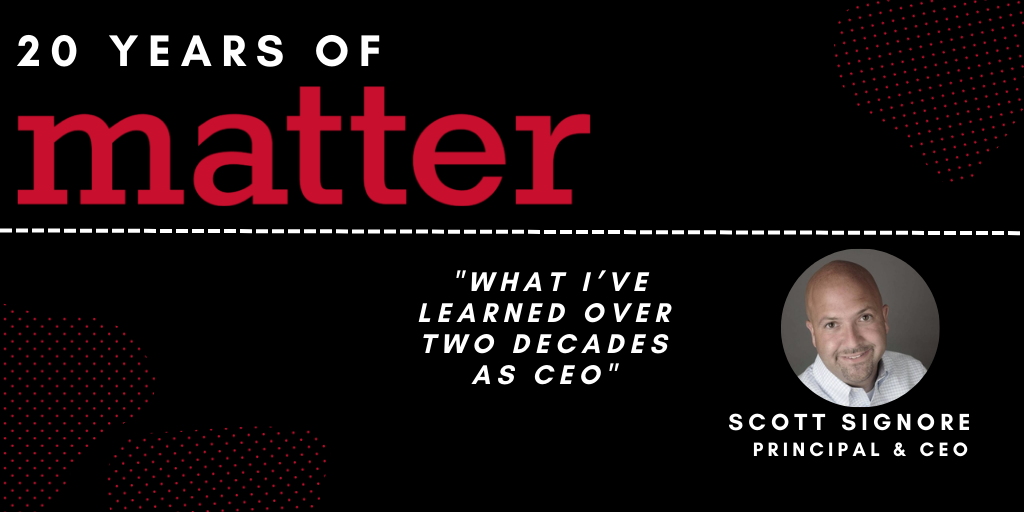A pioneer in the now ubiquitous software-as-a-service (SaaS) industry, Salesforce is the global leader in CRM, bringing companies and customers together in the digital age. Founded in 1999, Salesforce enables companies of every size and industry to take advantage of powerful technologies—cloud, mobile, social, voice, and artificial intelligence—to connect to their customers in a whole new way. Companies trust Salesforce to help them transform their businesses around the customer in this digital-first world. What makes the company special, though, goes beyond technical expertise.
This year, Salesforce was recognized in the MassTLC Tech Top 50 for both Company Culture and Tech for Good: Social Responsibility. From employee Equality Groups and a robust philanthropy program to working on some of the most impactful projects of our time like vaccine distribution, according to Bharath Krishnan, SVP Data Science & Software Engineering at Salesforce, the Salesforce team is making a difference every day, in and out of work.
 Saskia Epstein, Vice President, Client & Community Relations at PNC Bank– a Tech Top 50 Platinum Sponsor – sat down with Bharath to find out more about the culture of community, openness, philanthropy, and innovation that make Salesforce a special place to work.
Saskia Epstein, Vice President, Client & Community Relations at PNC Bank– a Tech Top 50 Platinum Sponsor – sat down with Bharath to find out more about the culture of community, openness, philanthropy, and innovation that make Salesforce a special place to work.
___
Saskia Epstein: For those who aren’t familiar with Salesforce, could you share some background about the company?
Bharath Krishnan: Salesforce is the pioneer of what we now call “Software as a Service.” We could think of Salesforce as one of the original cloud companies, in that you don’t need to buy the software and install it to run it. Salesforce will do that all for you magically on the cloud, you just pay a subscription. The name refers to the first product that Salesforce had, which is Salesforce Automation. This was more than 20 years ago.
At this point, Salesforce is pretty wide in what it does beyond CRM. The Salesforce Automation product is still one of the largest products in the Salesforce portfolio. Any company that has salespeople can use it to keep track of who are they talking to, what are they saying, what are their needs, who did they sell what to, and things like that. All of the day-to-day activities that salespeople need to do happens in Salesforce Automation. If you send emails or some such communications to a customer, you would use Salesforce Marketing Cloud. If someone calls for customer service, you’d use Salesforce Service Cloud and so on…
Saskia Epstein: That was my favorite Salesforce feature [from my background as a nonprofit fundraiser]; I could integrate my email into Salesforce for my staff to see. You’ve saved a lot of managers a lot of headaches over the years in that regard.
Is there anything else that is new or are there recent developments that you’d like us to know about?
Bharath Krishnan: There are many such businesses, but the underlying thing about Salesforce is that it’s a platform. As a platform, it’s very flexible in what we can do with it, so when the time calls for quickly pivoting into something new, like last year [during the pandemic], we can do that. Vaccine Cloud or Work.com are some of the newer products that we have, for example. Some very smart people built something super flexible many years ago, which we can reuse for multiple purposes. That’s the reality.
Saskia Epstein: Salesforce was recognized in two MassTLC Tech Top 50 categories: ‘Company Culture,’ and ‘Tech for Good, Social Responsibility.’ Let’s talk about what makes the Salesforce culture so special. What do you think are the most important or defining elements of your culture?
Bharath Krishnan: I can think of two things. One is, how values-driven we are, from the top down. Everyone at Salesforce believes very strongly that we can use business as a vehicle for change, and you can see that reflected in our actions and not just in words. Values are very important. We’re not perfect, but we hope that our values guide us. Our culture and core values of Trust, Customer Success, Innovation, and Equality influence everything we do.
Our top priority continues to be supporting our team during the COVID-19 pandemic — inclusive of our customers, employees and their families, friends, partners, and communities. We established initiatives, like a day each week without meetings and monthly organization-wide days off, that give employees time to rejuvenate and balance the ever-changing demands of work and home life.
The other part that is fascinating is how tightly volunteering and volunteerism is built into the fabric of the company. As a relative newcomer to Salesforce, who has only been here six years, the idea of contributing 1% of our time, 1% of our equity, and 1% of our product to support philanthropic efforts all over the world was unique at first. This is all employee-driven. We have very dedicated and passionate employees who care about lots of different causes, and you can organize around that and spend working time helping in areas that you care about in the communities that you live in. That is pretty cool.
Saskia Epstein: You mentioned that volunteer efforts and social impact philanthropy are employee driven. Here, we call them EBRGs, but you have a special name for them at Salesforce, right?
Bharath Krishnan: We call them Equality Groups.
Saskia Epstein: Equality Groups – they play an important role in the organization as well. Can you share how they impact your ability to create a supportive culture and fulfill the social mission that you described?
Bharath Krishnan: Again, everything is employee organized and driven. I’ll give you an example of an Equality Group which I relate to. There’s a South Asia Equality Group, and I’m from India, but you don’t have to be from South Asia to be part of it. Anyone can join the group. One way we saw its impact in action was when India went through the terrible second COVID wave. There was an enormous amount of organizing, fundraising, and volunteering that people at Salesforce did, driven primarily via the Equality Groups and also via the folks in our company who work out of India.
There are many other such Equality Groups, and anyone at Salesforce can join them. Some of the others include Asiapacforce, Women’s Network, Latinoforce, Vetforce, and Earthforce. These groups organize events, they fundraise, they organize volunteering activities. Every senior leader in Salesforce is encouraged to sponsor and support one of these groups. You can pick one or many as you like it, and it’s an interesting way to learn about things that you may not know much about.
Saskia Epstein: You’ve been at Salesforce for some time. If somebody is a newcomer, which aspects of the culture would either come as a surprise, are distinctive or unique, or that you would really miss if you went somewhere else, because it’s just part of the special sauce at Salesforce?
Bharath Krishnan: One thing I appreciate about Salesforce is how open internally the company is. There are no secret plans. Everyone knows what the plans are, what are we trying to do, where are we trying to get to, what are the values that are important to us, how are we going to do it, what’s going to prevent us from getting there, and how we know we’ve succeeded. That’s the organizing principle of the company. The openness internally is fascinating. Openness brings with it open conversations, and sometimes they’re very important. Employees internally in the company can bring up topics, and we have open discussions that actually impact how the company works. The internal culture of openness is really special to me.
Saskia Epstein: I know from firsthand experience that openness is a ripe environment for creativity and innovation. I’d love to talk about that at Salesforce. You mentioned specifically the Vaccine Cloud. Can you explain more about what it is and how it came to be?
Bharath Krishnan: Late last year once we knew vaccines were available and effective, the problem became how to distribute them. Every large institution – governments all over the world, cities to states to countries – they all needed ways to make sure that the people who are eligible for the vaccines could sign up for them. People were asking questions like “How do we schedule the vaccinations themselves? How do we do the supply chain and logistics behind the distribution of the vaccines? How do we follow up with the folks who have had the vaccine? How do we do? How would boosters work?”
More than one government was working with private companies to figure out how to solve these things, and the flexibility of the Salesforce platform allowed us to pivot very quickly to build a solution that addresses them. That is what we now call “Vaccine Cloud.” It was very rewarding for those who worked on that project to be a part of something much bigger.
Saskia Epstein: It sounds like a triumph in technology, the seeds of which were planted a long time ago. What are some of the ways that you think Vaccine Cloud is having an impact? What do you see happening with this product?
Bharath Krishnan: The impact of the past is clear. The state of New Hampshire was an early adopter, and if you look at the stats now, almost the entire population, more than 90%, have had at least one shot, two thirds of the population have had two. Clearly that has an impact on the health and well-being of the folks there. The future is interesting. One way you can think about it is that I am hopeful for a future where we don’t need Vaccine Cloud, but I don’t know if that is going to be the reality as this pandemic becomes endemic. Unfortunately, things like this are going to be necessary. Let’s hope that we don’t need it, but if we do need it, it’s there, and we can continue innovating on that.
Saskia Epstein: Which other social good spaces or issue areas do you see Salesforce products having a social impact or where can the company itself lean more into its philanthropy or employee or volunteer engagement?
Bharath Krishnan: As we distribute vaccines, the question becomes, how do we safely reopen? We cannot remain in the closed state forever. At some point, life must go on. How do we safely do it? That’s where Work.com comes in. Work.com does everything from contact tracing to, if we have restrictions on the number of people, calculating who can work in an office. It answers the questions, “How do we do shifts? How do people sign up for shifts? How do we do real-time testing? How do we follow up on testing?” and more. That’s a whole suite of software that is now out there for companies to safely reopen, and safely reopening translates to economic benefits, which hopefully is good for all of us.
On the philanthropic side, there are multiple things. In the Boston area, there are lots of passionate employees who support great causes. For example, there’s Light the Night, the Lymphoma Society, Habitat for Humanity, the Year Up program, the schools we support. I know that a lot of folks on my team have volunteered.
During the pandemic itself, I mentioned the efforts that some of the volunteers did in India. For example, manning telephones, where people could call in and ask for help. The other cool thing I know folks here in Massachusetts did, they figured out how to make 3D print face-shields. Now there is some money behind them internally, and with executive support, they’re still 3D printing face-shields. We are shipping them to where people need it. Remember when we had the tremendous PPE shortage? Folks at Salesforce worked with some of our business partners in China and Alibaba to load up airplanes full of PPE and ship them where they were needed. Even as an insider looking at it, it was quite an awesome effort.
Saskia Epstein: That’s quite a list! It’s clear why Salesforce is recognized, both for its culture as well as its social impact in the Tech for Good category, as an incubator of great ideas that are born out of wanting to make a difference in the world. What does it mean to you and the company to be recognized in the Top Tech 50 for your success this past year?
Bharath Krishnan: Of course, it’s a great honor. I think it is a testament to the passion and hard work that the folks here at Salesforce have. We think of people as stakeholders; it’s not just the employees, it’s also the customers we support. It’s our partners. It’s also our families. We’re very proud of it, and we hope to be effective partners in the Boston area and push forward things that we care about in the future. It’s a tremendous recognition, so thank you.
Saskia Epstein: Is there anything we did not discuss that you would want our audience to know about Salesforce?
Bharath Krishnan: Salesforce is a very large company with lots of different teams, doing lots of different things. The big part of Salesforce that lives in Boston is Commerce. Sometime in the last year, it turned out it was safer if we didn’t congregate in huge numbers in places like grocery stores. If you, like me, have ordered groceries online to pick up in store, guess what, that technology was probably built in the Boston area. Work.com that I talked about, where you’re scheduling shifts and things like that is partly built in the Boston area.
If you want to be part of any of that, there are fantastic opportunities for sure. Salesforce has a very strong “giving back to the community” culture. If you ask people who’ve been at Salesforce for a long time, they will tell you that we like that we are in a place where it’s not just work, we can also do some good. We can follow the things that we are passionate about. There’s good work-life balance; this is a company that cares, and there’s very interesting technical work to be done.
___




